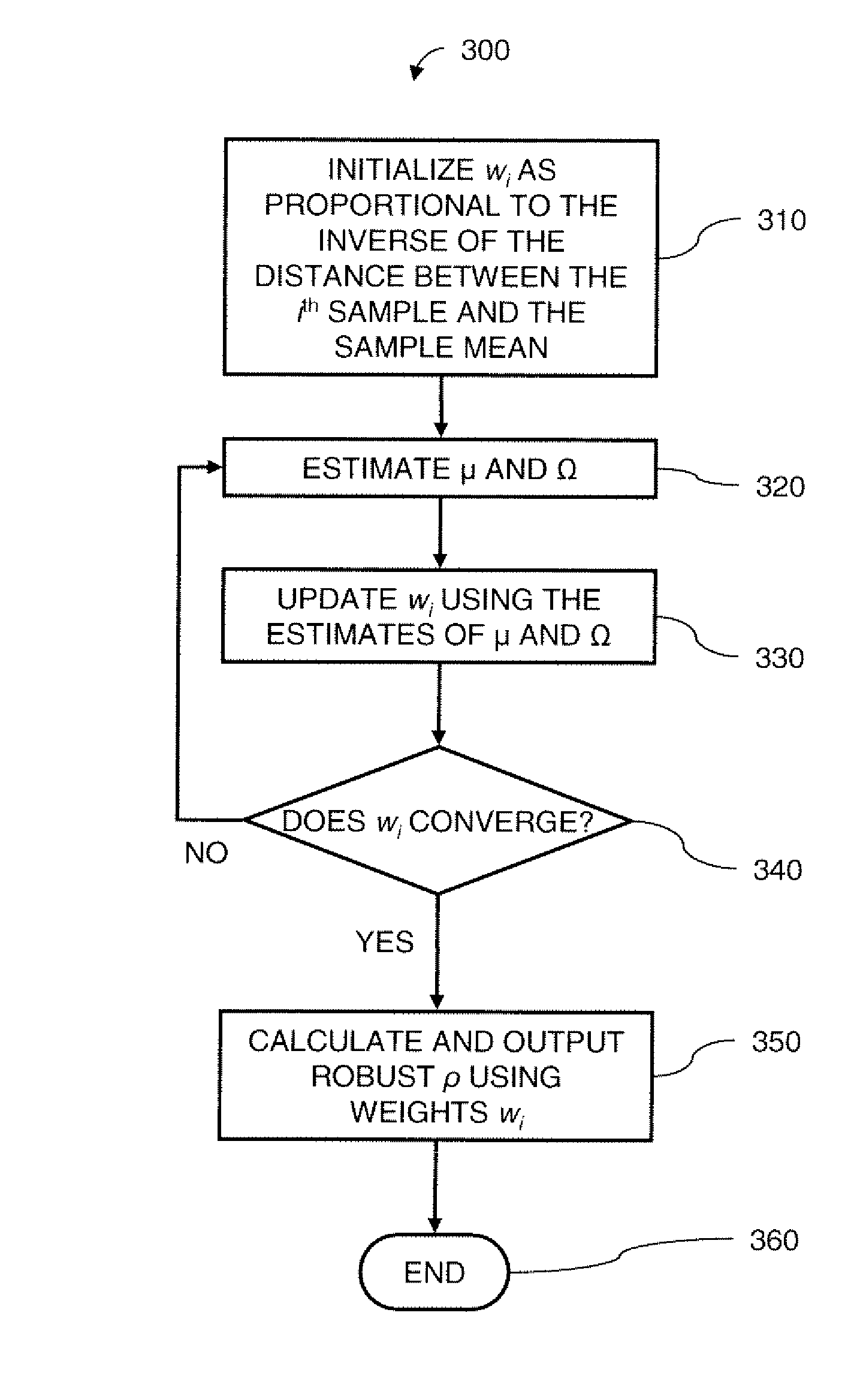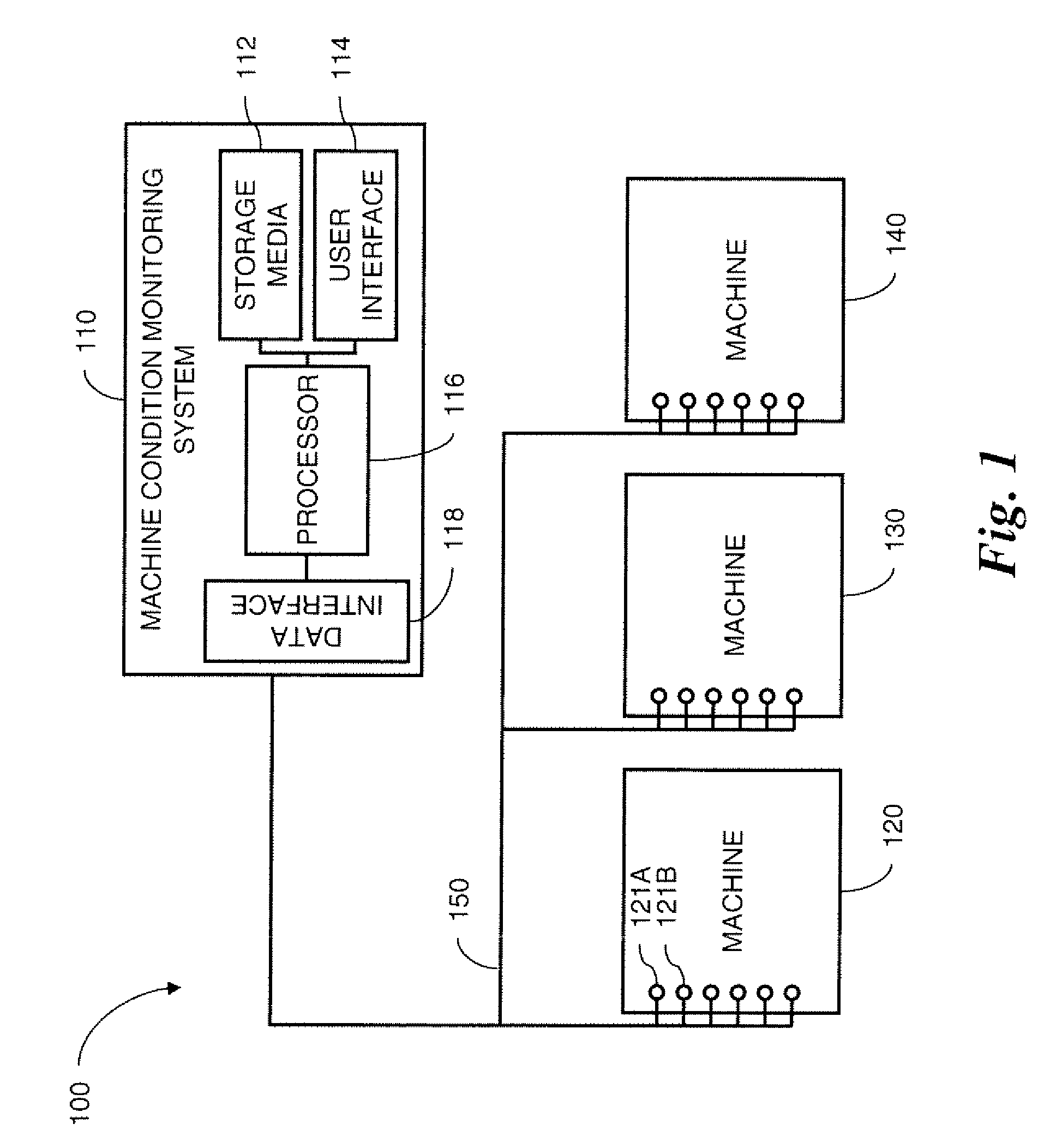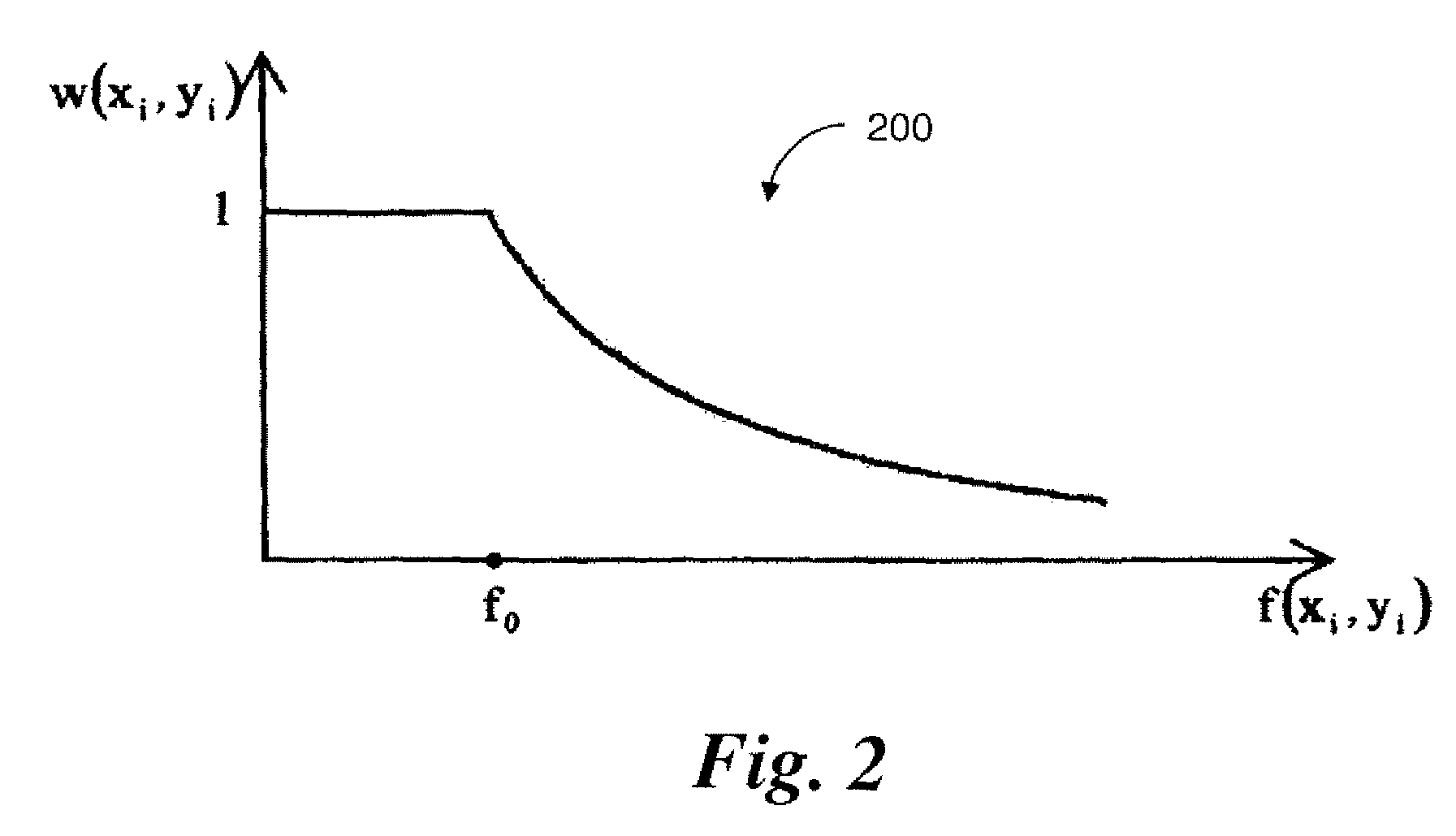Robust sensor correlation analysis for machine condition monitoring
a sensor correlation and machine condition technology, applied in the field of machine condition monitoring, can solve the problems of inability to directly achieve, difficult to obtain accurate physical models, and inability to accurately identify faults, etc., and achieve the effect of obtaining the desired clustering results
- Summary
- Abstract
- Description
- Claims
- Application Information
AI Technical Summary
Benefits of technology
Problems solved by technology
Method used
Image
Examples
Embodiment Construction
[0032]A system 110 for monitoring conditions of machines 120, 130, 140 according to one embodiment of the invention is shown in FIG. 1. The system includes a plurality of machine sensors such as the sensors 121A, 121B connected to machine 120. The sensors may, for example, be accelerometers, temperature sensors, flow sensors, position sensors, rate sensors, chemical sensors or any sensor that measures a condition of a machine or process. The sensors measure conditions chosen because they are related in predictable ways that reflect the presence or absence of normal operating conditions in an installation 100.
[0033]The sensors 121A, 121B are connected through a data network 150 to a data interface 118 in a machine condition monitoring system 110. A processor 116 receives the sensor data from the data interface 118 and performs the monitoring methods of the invention. The processor is connected to storage media 112 for storing computer-readable instructions that, when executed, perfor...
PUM
 Login to View More
Login to View More Abstract
Description
Claims
Application Information
 Login to View More
Login to View More - R&D
- Intellectual Property
- Life Sciences
- Materials
- Tech Scout
- Unparalleled Data Quality
- Higher Quality Content
- 60% Fewer Hallucinations
Browse by: Latest US Patents, China's latest patents, Technical Efficacy Thesaurus, Application Domain, Technology Topic, Popular Technical Reports.
© 2025 PatSnap. All rights reserved.Legal|Privacy policy|Modern Slavery Act Transparency Statement|Sitemap|About US| Contact US: help@patsnap.com



